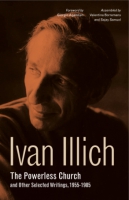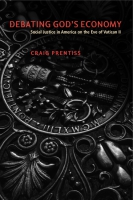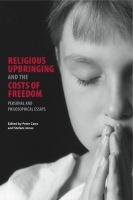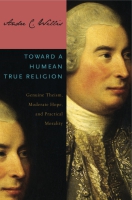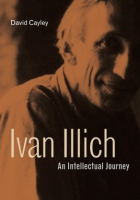
The Powerless Church and Other Selected Writings, 1955–1985
Ivan Illich, Foreword by Giorgio Agamben, and Assembled by Valentina Borremans and Sajay Samuel
The Powerless Church and Other Selected Writings, 1955–1985
Ivan Illich, Foreword by Giorgio Agamben, and Assembled by Valentina Borremans and Sajay Samuel
“Ivan Illich was one of the most interesting thinkers of the twentieth century, profound and incapable of being pigeonholed. In this collection of writings one can trace the connection between Illich’s radical critiques of bureaucratic, managerial modes of production in both church and state and his deep spiritual sense that vulnerability to God and to other people is necessary for a life that is truly alive. Illich’s thought and spirit remain surprisingly relevant in the current cultural context.”
- Description
- Reviews
- Bio
- Sample Chapters
- Subjects
A fervent critic of Western Catholicism, Illich also addressed contemporary practices in fields from education and medicine to labor and socioeconomic development. At the heart of his work is his opposition to the imperialistic nature of state- and Church-sponsored missionary activities. His deep understanding of Church history, particularly the institutions of the thirteenth century, lent a historian’s perspective to his critique of the Church and other twentieth-century institutions.
The Powerless Church and Other Selected Writings, 1955–1985 comprises some of Illich’s most salient and influential short works as well as a foreword by philosopher Giorgio Agamben. Featuring writings that had previously appeared in now-defunct publications, this volume is an indispensable resource for readers of Illich’s longer works and for scholars of philosophy, religion, and cultural critique.
“Ivan Illich was one of the most interesting thinkers of the twentieth century, profound and incapable of being pigeonholed. In this collection of writings one can trace the connection between Illich’s radical critiques of bureaucratic, managerial modes of production in both church and state and his deep spiritual sense that vulnerability to God and to other people is necessary for a life that is truly alive. Illich’s thought and spirit remain surprisingly relevant in the current cultural context.”
“Ivan Illich breaks through the haze of contemporary humanism and unabashedly affirms ‘the autonomy of the ludicrous in face of the useful’ and the ‘spontaneous as opposed to the rationalized and planned.’ Carefully read these idiosyncratic essays: they are a bracing antidote to your cherished ways of seeing—and living.”
“We tend to normalize the teaching of the Gospels, but then someone like Ivan Illich comes along and shows us how radical it is. This collection offers a series of reminders of Illich’s ability to surprise us and wrench us out of the ruts that our thinking easily slides into. Whether it is about the Kingdom, virginity, or death, and whether we agree or not, Illich’s insights open up new avenues of understanding.”
“This collection is full of such sage wisdom, and not only about death. It is assembled by the competent and committed hands of Valentina Borremans and Sajay Samuel, and sharply addresses the shortcomings of the Catholic Church to which Illich remained committed, and the church’s complicated cultural embeddedness and expansion in the 20th century. It develops prophetic-like analyses of how the church can regain, especially in Latin America, its sense of pride in a radical balance of independence and unity.”
Ivan Illich (1926–2002), a philosopher, theologian, and historian, was considered one of the most important and lucid thinkers of the second half of the twentieth century. He was the author of several books, including Celebration of Awareness, Medical Nemesis, Gender, and In the Vineyard of the Text. He was Visiting Professor of Philosophy and of Science, Technology, and Society at Penn State University in the 1980s and 1990s.
From the Foreword: Laughter and the Kingdom
Giorgio AgambenTranslated by Lorenzo ChiesaThe texts Valentina Borremans and Sajay Samuel collected in this volume allow us to follow Illich’s intellectual itinerary over a period of time—from 1955 to the publication of his first books—of which we knew very little. These are the years of his pastoral commitment as deputy parish priest of the Iglesia de la Encarnaci.n in New York and then as deputy rector of the Universidad Católica of Puerto Rico, of his participation in the Second Vatican Council in Rome and in the foundation of the Centro Intercultural de Documentaci.n in Cuernavaca. Given that Illich is here acting as a priest within the Church, it is very tempting to distinguish the author of these texts from the Illich who, on March 15, 1969, laying down “the privileges and powers awarded to him by the Church,” undertakes to renounce forever the public exercise of ministry and starts an activity as a writer and conference speaker that in a few years turns him into a well-known figure discussed around the world. However, it is sufficient to read carefully the texts assembled here to realize that it is not possible to mark any break between the Illich who is within the Church and the one who lies outside of it (or at its margins). Certainly, the possibility of transforming a parish in Manhattan (“The American Parish,” 1955), the meaning of virginity (“Sacred Virginity,” 1955), the education of missionaries (“Spiritual Poverty,” 1961), the meaning of death in Christianity (“Rehearsal for Death,” 1956; “The End of Human Life,” 1958), religious experience and mysticism (“Aesthetic and Religious Experience,” 1966), the transformation of the functions of the clergy (“The Vanishing Clergyman,” 1967), and the problem of the transmission of faith (“How Will We Pass on Christianity?,” 1972) seem at first sight to be themes that do not exceed the preoccupations of a pastor who interrogates himself about the future and the meaning of his Church. And yet, if we pay attention to the paradigms that guide the reflections of the young priest, the proximity with the thought of the Illich who is outside of the Church is surprising.The hypothesis I would like to suggest is that the concepts of Illich as a critic of modernity and archaeologist of conviviality originates as a radical and coherent development of theological categories already present in the thought of the priest.In the texts collected here, Illich interprets at each turn the problems he tackles in the light of a small number of genuinely theological concepts: prayer, spiritual poverty, and the kingdom. The two articles on death thus culminate in the claim that not only is there a profound parallelism between death and prayer, but death as a specifically human act (“the last act of human life”) is nothing other than a “pure and supreme form” of prayer. Two years later, the silence that defines the condition of spiritual poverty of the missionary who has abandoned all he has, including his language, is analogous to the silence of the prayer that precedes every word, a “gift of prayer, learnt in prayer faced by the infinitely distant and infinitely foreign God” (p. 46). Still in 1972, the essay “How Will We Pass on Christianity?” turns prayer and poverty into the paradigm of the visibility of the Church, which needs to be sought “in the conscious evangelical interpretation of prayer rather than in the evangelical interpretation of some political or organizational structure” (p. 163). But if we now ask what Illich means here by prayer, the same text answers by listing among the “explicitly formal prayer forms,” along with silence and nocturnal awakening, “good gourmet eating on certain occasions, feasting and even orgiastic behavior, or common recitations of poems” (163). This means that, for Christians, “every action of life ultimately resolves into prayer” (p. 41) and that what Illich calls prayer is not a ritually separated activity but the present transformation of every act of life as a result of grace and the encounter with the divine. In the already quoted essay on the transmission of faith, which anticipates many of the theses of the later Illich, we read that “to live as a Christian means to live in the spirit of Maran Atha—the Lord is coming at this moment. It means to live and to enjoy living at the edge of time, at the end moment of time” (p. 153).Unsurprisingly, the absolutely decisive category of thought of the early Illich is precisely the eschatological concept of Kingdom, which has always been recognized as the central content of Jesus’s preaching and which has nonetheless increasingly disappeared from the vocabulary and the pastoral practice of the Church. The longest essay of the book, “Aesthetic and Religious Experience,” in fact ends with a brief treatise on the Kingdom, which we will have to read carefully, since it contains, so to speak, the theological foundations of Illich’s thought.First of all, we need to assess the distance that separates Illich’s reference to the evangelical kingdom from the Reichsideologie that was developed in theological circles between the two World Wars as a reaction to the millenarian ideologies of European fascism, which culminated in the national-socialist doctrine of the “Third Kingdom.” If already in 1925, responding to the totalitarian mobilization of the people brought about by fascism, Pius XI instituted the feast of Christ the King—whose emblem was the ancient acclamation Christus vincit, Christus regnat, Christus imperat—it is in German Catholicism, in the Benedictine abbey of Maria Laach, that the identification of the Church with the Kingdom was once again emphatically affirmed—along with the claim about the dramatic efficacy of liturgy. Here—beside a position admittedly close to Nazism, such as that of Ildefons Herwegen—Thomas Michels argued, referring to Peterson, that “the history of the Kingdom of God on earth” coincides with the redemptive work (the Heilswerk) of the Church. (Illich might have attended Michels’s courses at the Faculty of Theology of Salzburg in 1950.)The evocation of the Kingdom in Illich’s text is completely different. Abandoning any immediate political identification of the Church with the Kingdom, Illich begins with the evangelical parables on the kingdom (significantly written with a lowercase k): “A large proportion of the tales in the Gospels refer to the ‘kingdom.’ The kingdom arrives and there is no way to stop it; he who has ears to hear, let him hear. It arrives at night, unexpectedly, as a thief; the day of the Lord arrives; it is a source of peace and joy for the believers, and a scandal for those who reject him” (p. 83). For Illich it is decisive that the kingdom is already present, here and now, “among us” as an objective reality and not simply “in us”:The kingdom comes, and yet it already is. It is the kingdom of God that comes, and which is already among us (not subjectively speaking “in” each one of us—let alone cosmologically beyond us—but among us). It is the Messiah who unveils and reveals this. Just as the Messiah is always at the door, the kingdom is ever “already” present: in this moment, at death, at parousia. It is difficult to distinguish these three moments, because according to the Scriptures, the kingdom has been already accomplished in spite of it not yet being fulfilled (completely accomplished). It is a paradoxical reality: “already” and at the same time, “not yet.” (p. 83)It is precisely the impossibility of distinguishing these three times that defines Illich’s conception of the kingdom: it is by no means a matter of three chronological moments in a process that will be realized only in the future, but of a very particular kind of presence, here and now.In this sense, Illich’s notion of kingdom presupposes an extremely combative interpretation of the Gospel and its patristic and scholastic commentaries, which subtracts it from the equivocations of the “history of redemption.” In Jesus’s words, the kingdom is “among you” (this is the meaning of entos hymon in Luke 17:20) and, at the same time, not of this world (he basileia he eme ouk estin ek topou kosmou toutou—John 18:36); the kingdom has come (ephthasen—Luke 11:20) and, at the same time, is near (engiken—Matthew 3:2). And yet, as the ancient commentators suggest, this does not mean that the kingdom is elsewhere. In Augustine’s words: “Jesus did not say: ‘It is not in this world,’ but ‘it is not from this world’”; as Thomas Aquinas puts it even more clearly: “Saying that the kingdom is not here, he means that it does not originate from this world, and nonetheless it is here, since it is everywhere (est tamen hic, quia ubique est).” The eschatological event not only interrupts and transforms the linear time of chronology, contracting in itself past, present, and future; it also has a spatial meaning, or, as Illich writes, “a para-temporal dimension” (p. 85), which concerns the relation among humans: “It makes realism explicit: the kingdom already exists among us in a social sense, and it consists in the progress of love” (p. 85). Just as Jesus, asked by Pilate whether he is a king, answers by abruptly changing the topic of the kingdom into that of bearing witness unto the truth, as if kingdom and truth were synonymous (“Thou sayest that I am a king. To this end was I born, and for this cause came I into the world, that I should bear witness unto the truth”—John 18:37), so Illich indissolubly links the presence of the kingdom to a testimony: the transmission of faith in the kingdom “is the result of testimony, and not of conceptual teaching; it is the result of the fulfillment of the kingdom in the heart of the witness” (p. 87). The presence of the kingdom does not depend on eschatologically awaiting the end of days but on the testimony humans give of it here and now. For this reason, anticipating a central concept of Illich’s thought, testimony can only have the form of conviviality and celebration:The kingdom is a social reality at a transcendental level. Hence, it cannot be communicated except by means of a communitarian and fraternal form-of-life. . . . Faith manifests ritually in the celebration of the mysteries of the kingdom, the symbols of its presence. And I say celebration, not affirmation or contemplation. Faith is only acquired in con-celebrating, in the conviviality of a gratuitous act, as exemplified by a meal of bread and wine, in which there is food, but a ritual food. The faithful believe in the celebration of the kingdom that is really present. Con-celebrating with its gestures and words, the neophyte engages in faith. What distinguishes believers from non-believers is the fact that they “celebrate” all their life, just as they celebrate this meal or this gathering. (pp. 87–88)From this perspective, the entirety of Illich’s thought appears as a thought of the kingdom, of its special presence among us, already accomplished and not yet accomplished. The incompletion in question here is not temporal; it does not imply a chronological succession or an accomplishment to be realized in the future. Completion and incompletion are both contained in the present, since “only in the present the Lord redeems. . . .We have no idea if there is a future” (p. 159). In this sense, and against what the Church claims, there is no “history of redemption,” no divine oikonomia that is progressively manifested and fulfilled in history. Redemption has no history, “the Lord is coming at this moment” (p. 159), and it is here and now that the believer witnesses to his coming (from here follows, in Illich’s later thought, his constant distrust of the future: “I will not allow the future to cast its shadow over the concepts through which I try to think what is and what has been”).Illich repeatedly compares the presence of the Kingdom to the understanding of a joke (he writes that the believer and the non-believer are like two men who are listening to a joke: “Both understand the words, but only one of them laughs and grasps the point of the story” (p. 88). Given his extraordinary theological culture, it is possible that Illich is here quoting a passage from Origen in which the kingdom is compared to the comprehension of the spiritual meaning of the Scriptures. Just as, according to Origen, the spiritual meaning is not another literal meaning that follows a previous one but coincides with its comprehension and is exhausted by it (in Illich’s words, by the fact that the one who listens to a joke laughs), so, for Illich, the experience of the event of the kingdom does not imply a further historical event to be realized in the future—following the paradigm that has dominated Western politics, including that of the Church. This experience fully coincides with the present moment, in which the one who has understood the message bears witness to it by laughing.(Excerpt ends here.)
Mailing List
Subscribe to our mailing list and be notified about new titles, journals and catalogs.
